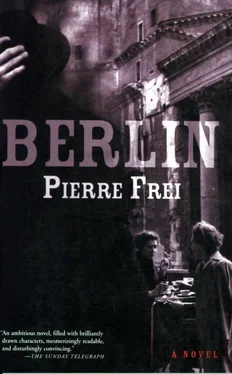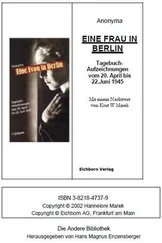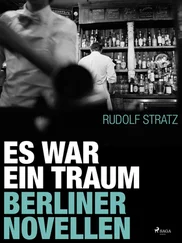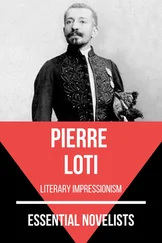Pierre Frei
Berlin: A Novel
THE BOY NEVER took his eyes off the soldier. The American removed the last Lucky Strike from its packet and tossed the empty wrappings on the tracks. He lit the cigarette and waited for the U-Bahn train coming in from Krumme Lanke station to stop. If the Yank was going only one station up the line to Oskar-Helene-Heim, he'd throw the half-smoked cigarette away as he got out, it would fly through the air in a wide arc, and the boy could retrieve it.
A dozen cigarette butts of that length, once the burnt end had been neatly trimmed away with a razor blade, would earn him forty marks. But if the Yank was travelling further the prospects weren't so good, because then he'd probably tread out that coveted cigarette on the floor of the car or chuck it out of the window, which was open in the summer weather. Yanks were entirely indifferent to such things.
With equal indifference, the US Army quartermaster had ordered that a square mile around the Onkel Toms Hiitte U-Bahn station was to be fenced in with barbed wire, leaving only one narrow passage available to German passengers for access. The shopping streets on both the longer sides of the station were off limits too, and had become a centre for the soldiers billeted in the requisitioned apartment buildings around it.
Decades before, the landlord of an inn frequented by people going on excursions to the nearby Grunewald had called his establishment after Harriet Beecher Stowe's affecting novel, Uncle Tom's Cabin, and the Berlin Transport Company adopted the name for the new U-Bahn station built in late 1929. 'Uncle Tom' soon became familiar to the American occupying forces when they arrived in 1945.
The U-Bahn train stopped. The Yank boarded it, cigarette in the corner of his mouth, and slouched against one of the upright poles you could hold on to. Another passenger followed him in and closed the door. The railwayman in the middle of the platform raised his signal disc. The conductor at the front of the train knocked on the window of the driver's cab to pass the message on, and swung himself up into the car as it started moving.
The boy watched the train leave. He had decided not to pursue the cigarette end. As soon as the stationmaster with the signal disc turned his back, he jumped down on the tracks to salvage the empty cigarette packet.
The stationmaster's head appeared above him. 'What d'you think you're doing down there?' he barked.
'Looking for cigarette ends.'
'Found any?' The man was thinking of his own empty pipe.
'No cigarette ends. Only a dead woman.' The boy pointed casually to something beside the tracks.
The stationmaster sat on the edge of the platform, put his disc down and lowered himself, grunting. Two slender legs in torn, pale nylon stockings were sticking out of one of the side bays which, if you bent double, enabled you to reach the cables below the platform. The feet were shod in brown, high-heeled pumps with white leather inserts, currently the latest fashion in the USA. The white inserts bore dark-red splashes of blood.
'She's American. Go get the Yanks.' The man clambered back up on the platform and hurried to his booth, where he took the receiver off its rest and cranked up the phone. 'Krumme Lanke? Onkel Tom stationmaster here. We got a dead woman under platform one. Stop the trains coming through from your end. Message over.'
The boy's name was Benjamin, but everyone called him Ben. He was fifteen, dark-blond, and showed no ill effects of the events of the last few months — the British and American air raids, the chaos of the final days of the war, the havoc as the Red Army marched in. He had filed these experiences away in his head, making room for new impressions. New impressions included Glenn Miller, chewing gum, Hershey chocolate bars and automobiles a mile long, first and foremost the Buick Eight, closely followed by the De Soto, the Dodge and the Chevrolet. New impressions included brightly coloured ties, narrow, ankle-length trousers, Old Spice and Pepsi Cola. All these items arrived overnight when, in line with the agreement between the Allies, the Russians vacated half of Berlin and Western troops moved into the ruined capital.
Ben climbed the broad steps to the ticket windows and walked away down the barbed-wire passage and into the dusty summer heat, which instantly made him thirsty. In his mind he pictured a cold sparkling drink. woodruff flavour. When you took the top off there was a promising pop, and the fizz rose into the air like a djinn from its bottle. But there was no woodruff-flavour sparkling drink available, just the dusty heat and a lingering aroma of DDT insecticide and spearmint chewing gum. Even the smells were different now the Yanks were here.
Ben strolled over to the guard on duty at the entrance to the prohibited area. Haste would have suggested dismay. 'Dead woman on the U-Bahn,' he said.
'OK, buddy. It better be true.' The man on duty reached for the phone.
The call came from the Military Police. Inspector Klaus Dietrich took it. 'Thanks, yes, we're on our way.' He hung up and called, 'The car. Franke.'
'Just heating up. It'll take a good half-hour.' Detective Sergeant Franke pointed through the window at an old Opel by the roadside. It had a kind of sawn-off bathroom geyser fitted at the back, into which a policeman was feeding scraps of wood. When they were burning hard enough they would generate the wood gas needed to drive the engine. There was no gasoline available for the Berlin Zehlendorf CID.
'We'll take the bikes,' Dietrich decided. He was a tall man of forty-five, with grey hair and the prominent cheekbones of those who were living on starvation rations. His grey, double-breasted suit, the only one Inge had managed to retrieve from their bombed-out apartment on the Kaiserdamm, hung loose on him. He dragged his left leg a little. The prosthesis, fitted at the auxiliary military hospital in the Zinnowald School where he'd spent the end of the war, chafed in hot weather. His wound had saved him from imprisonment. and he'd been able to go home in May. Inge and the boys were living with her parents in Riemeister Strasse. Inge's father, Dr Bruno Hellbich, had survived the Hitler years in compulsory retirement but otherwise unharmed. He'd returned to his old position as a Social Democrat district councillor at Zehlendorf Town Hall, and he had been able to get his son-in-law a job as a police inspector. The Zehlendorf CID needed a temporary head, and Klaus Dietrich's pre-war work as deputy managing director of a security services firm and his lack of political baggage, compensated for the loss of his left leg below the knee and his absence of criminological training. In any case, he had soon found out that a sound understanding of human nature was perfectly adequate for dealing with black marketeers, thieves and burglars.
It took them fifteen minutes to reach the U-Bahn station, where their police passes got them past the gathering crowd.
'Oh shit, here comes my old man,' muttered Ben, making off.
An American officer was standing on the tracks with a military policeman and the stationmaster. They had laid the dead woman down on her back. She was blonde, with a beautiful face and regular features. Her blue eyes stared into space. Strangulation marks suffused with blood were notched in her delicate neck. Klaus Dietrich pointed to her nylon stockings, her nearly new pumps, and her fashionable, pale summer dress. An American,' he said, gloomily. 'If a German did this there'll be trouble.'
Sergeant Franke scratched his head. 'I feel as if I've seen her before.'
The American officer straightened up. 'Which of you guys is in charge?'
Klaus Dietrich answered. 'Inspector Dietrich and Sergeant Franke, Zehlendorf CID.'
Читать дальше












